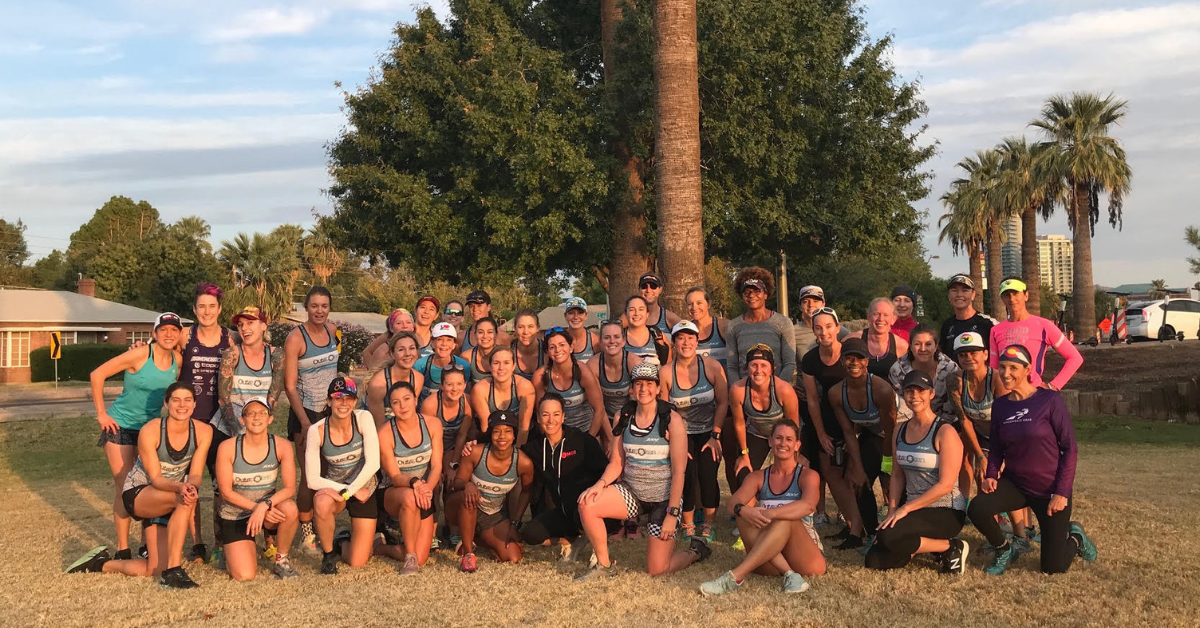December 13, 2023
5 Things Many Doctors Still Miss About Menopause
Active women especially can struggle to get quality care. Here’s why.
By Selene Yeager
We are literally a new generation of menopausal women like the world has never seen. We are the first generation of women who grew up with Title IX in the US, which ushered in a massive wave of girls and women in sport. We’re at the pointy end of a period in history where women entered the workforce in droves and are now holding positions of power and have large platforms to share their stories and experiences. We are a big reason why the mainstream media and even medical institutions are finally giving menopause the attention it deserves.
While it’s great to be pioneers, it also means we’re out there breaking ground, which is why we all can end up a little lost when it comes to this menopause journey. Even many doctors haven’t caught up yet. Plus, as active women, we’re just different. We have different activity levels. We have different goals. We have unique needs from the larger, more sedentary population.
So, it’s not terribly surprising that many doctors still miss a lot about our menopause experience and care, especially when you consider that physicians have not traditionally been adequately trained in menopause care. But it’s something we need to be aware of if we want the best treatment and outcomes. Here’s what to watch for as you pursue the treatment you deserve.
We don’t just need to “eat less and move more.”
We see it all the time. A woman in our community is talking to her doctor about the body composition changes she’s experienced—muscle decline, increased belly fat—and she’s told some variation of “eat less and move more.” We get it. The vast majority of women doctors see are sedentary. Only about a quarter of adults—and far less in certain regions—meet the minimum recommended aerobic and muscle-strengthening exercise guidelines (i.e., getting 150 minutes of moderate exercise and two days of muscle strengthening per week). Doctors dish out “eat less, move more” as a matter of course, but a menopausal woman who goes to CrossFit three days a week or is training for a half marathon needs different guidance.
Many practitioners also don’t understand the root cause of menopausal weight shifts. Or they don’t believe women when they say it seems to happen overnight, though research has clearly shown that when it comes to body composition, women can lose 10% of their muscle mass during perimenopause alone, and fat mass can double as lean mass declines as women approach their final menstrual period—a trend that continues until two years after they officially hit menopause.
That’s not even taking into account the blood sugar, cortisol, insulin resistance, sleep disturbances, and other issues that arise during the menopause transition that can impact weight.
Dramatically cutting calories is damaging to the body. We end up losing muscle first and then bone–neither of which we can afford to lose at this time of our lives. Our body often then holds onto fat as a protective mechanism. We need a different approach! We need to prioritize muscle making and establishing a nutritional foundation of protein, fiber, and key micronutrients to help us turn the ship around. If a doctor tells you to eat 1,200 calories a day, find another care provider, STAT.
Our symptoms are more than hot flashes.
When it comes to menopause symptoms, vasomotor symptoms (VMS) like hot flashes and night sweats hog the medical spotlight. While it’s true that VMS are the “hallmark” of menopause symptoms, with up to 80% of women (depending on race and ethnicity) experiencing them, they are not the only—or even the most disruptive—symptom that many women endure. Women in our community often go see their doctors for achy joints and muscles, anxiety and/or depression, loss of mojo, sleep disruptions, and other hormone-driven symptoms that can fly under the radar and not be recognized as menopause-related in primary care settings, where many physicians, including OB/GYNs, have not been trained in menopause care.
That’s a problem, especially since surveys show the actual face-to-face time with your provider is 17 minutes. Having a list of your symptoms and concerns, as well as thoughts on treatments to explore, will help you maximize this time. Consider bringing along a symptom checklist like this one from letstalkmenopause.org. That way you
Symptoms don’t necessarily match hormone levels or “menopause stages.”
This is a biggie. It’s only been the past few years that experts have been talking about how long the menopause transition can really last, which is as long as 14 years! New research also reveals that women in the “late reproductive stage” of their lives, which is technically before they enter the menopause transition, experience symptoms strikingly similar to those associated with perimenopause, despite the fact that their cycles are still mostly regular. Women, and many of their health care providers, do not expect these changes until the age of 50 years.
Some doctors will test hormone levels, including follicle-stimulating hormone (FSH), antral follicle count (AFC), antimüllerian hormone (AMH), estradiol, and others to determine what stage of menopause a woman is in. Though these levels may help show where a woman is in her reproductive journey, there is no definitive test for perimenopause and these levels don’t necessarily reflect what she’s experiencing. Hormone levels in your blood or saliva are erratic during perimenopause and don’t reflect what is in your tissues, and hormone levels don’t determine symptomatology. Perimenopause is a clinical diagnosis based on symptoms. Some doctors are also reluctant to treat perimenopausal women with hormones, though perimenopause is often the period where women suffer the most. For the best care, find a doctor who listens to your symptoms and is willing to treat them.
Mindset matters.
Mindset can have a significant impact on menopause experience and symptoms. Research suggests that women with a positive mindset and attitude towards menopause may have a more positive experience and fewer symptoms like hot flashes and night sweats, than those with negative attitudes. (Though of course, if you’re having a hard time, your attitude can change; this is why menopause education and access to care matters!)
Your healthcare provider and support team are a big part of your menopause mindset. If your provider shrugs off your symptoms and essentially says, “Well, that’s the way it is when you get older,” it’s going to be harder to maintain that positive, growth mindset. It’s important to surround yourself with likeminded, active women who understand that bodies change, menopause matters, and there are steps you can take to optimize your health and performance during this time of your life.
We have big goals.
We are surrounded by peri and menopausal women doing kick-ass things, from qualifying for the pro field in Kona, to winning RAAM (outright!), to smashing world ultrarunning records. Even if we’re not aiming to win Ironman or go to the CrossFit games, as active women, we care about optimizing performance. Our bar for care is high. We need a support team that fully addresses our musculoskeletal health, pelvic floor integrity, thermoregulation, gut issues, and recovery needs as we go through menopause. We know what we’re capable of; we need our doctors to understand that as well.


 Outspoken Women in Triathlon Summit Returns Bigger than Ever
Outspoken Women in Triathlon Summit Returns Bigger than Ever  Driving the Lamborghini: Productivity and the Power of Paper
Driving the Lamborghini: Productivity and the Power of Paper  5 take aways from the Compete Sports Diversity Summit
5 take aways from the Compete Sports Diversity Summit  Simple Tips to Hone Your Bike Handling Skills
Simple Tips to Hone Your Bike Handling Skills 


